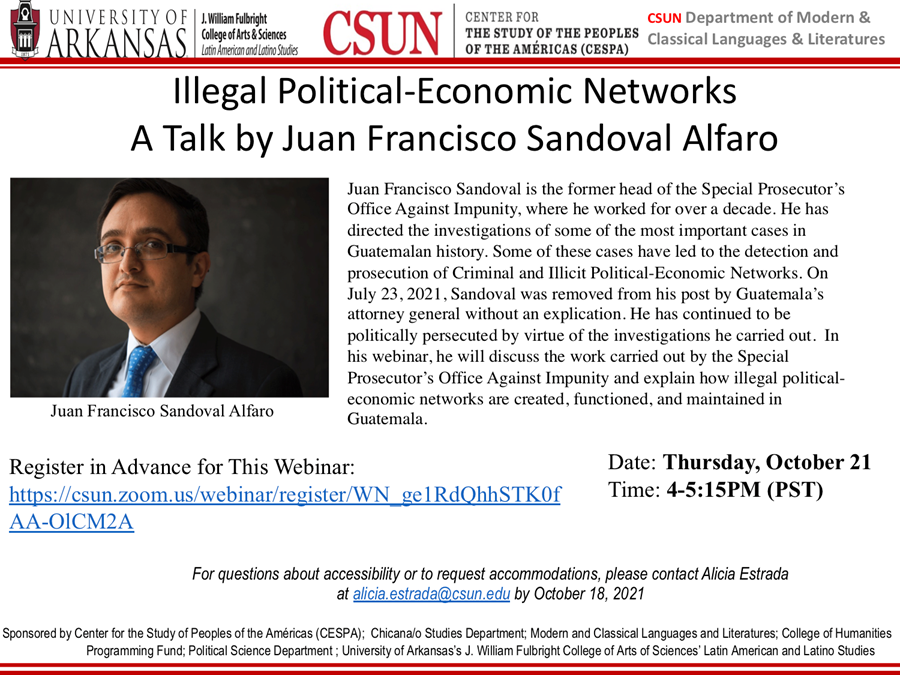Please join the Latin American and Latino Studies program for a talk with Juan Francisco Sandoval Alfaro, the former head of Guatemala's Special Prospector's Office Against Impunity, where he worked for over 10 years prosecuting criminal political-economic networks. After being forcefully removed from the position without an explanation in July, he has continued to be persecuted for his role in the investigations. Sandoval will discuss how illegal political-economic networks are created and maintained at 4 p.m. (PST)/6 p.m. (CST) on Thursday, Oct. 21, via Zoom. To attend, register in advance.
This webinar is presented by the Latin American and Latino Studies program in partnership with the Center for the Study of the Peoples of the Américas at California State University, Northridge. It is part of a series of webinars featuring influential figures and activists from Guatemala that will take place throughout the academic year. For concerns about accessibility or accommodations, please contact Alicia Estrada at alicia.estrada@csun.edu. For questions regarding the webinar series and/or the Latin American and Latino Studies program, please contact associate professor Yajaira M. Padilla at ympadill@uark.edu.
The Latin American and Latino Studies program is an interdisciplinary area and ethnic studies program housed within the Fulbright College of Arts and Sciences at the U of A. The LALS program provides in-depth exposure to the key geographic regions, historical trajectories, social modes, languages and political, economic and cultural systems of Latin America and the Latino U.S. The program offers co-major and minor course tracks. For more information, please visit fulbright.uark.edu/area-studies/latin-american-and-latino-studies.
The Center for the Study of the Peoples of the Américas at California State University, Northridge, promotes interest in and knowledge of peoples descendent of Latin American communities, whether of Latino/a, Asian, European, African or Indigenous origins, within the U.S. and south of the border. CESPA is committed to a deeper understanding of the creation and movements across borders and the development of border cultures, identities and economies.
Topics
Contacts
Yajaira M. Padilla, associate professor
Department of English
479-575-4301, ympadill@uark.edu
